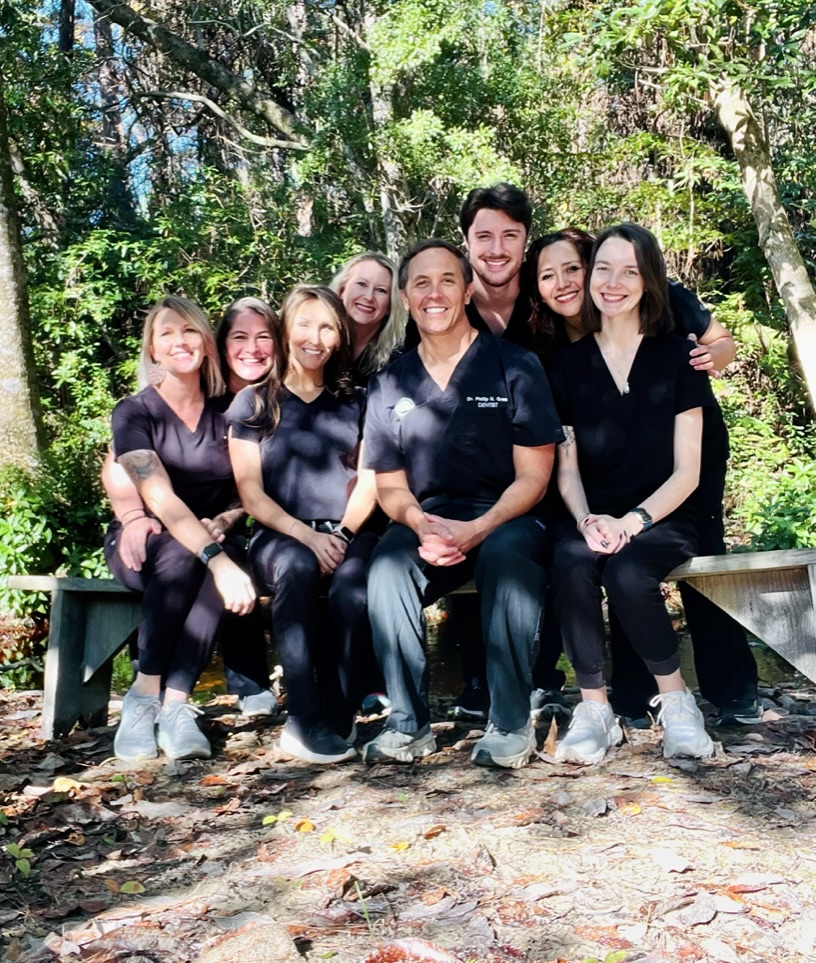Fairhope Cosmetic Dentist
Cosmetic dentistry has rapidly moved forward in recent years thanks to us patients. We paid attention and learned how to take care of our dental health. We eat a healthy diet, brush at least twice each day, floss, and have regular cleanings and checkups. If you have a dental issue having anything to do with your very-important-in-every-way smile your Fairhope cosmetic dentist is prepared to address it. Because there are many conditions your cosmetic dentist is trained and prepared to help you with, let’s take a look at some of these rewards; some of these techniques may be new to you. A brighter smile ranks up toward the top of the Fairhope cosmetic-dentistry wish list for many of us. Discolored teeth have many origins including genetics, medications, and even a love of coffee or tea, and there are just as many whitening methods to consider. Whitening chemicals may be used in the cosmetic dentist’s office or in your home.
Another procedure may be to remove the discolored top layer of the tooth exposing a brighter smile. Tooth bonding is another newer technique using tooth-colored composite resin materials to correct several dental flaws. This method of adhering thin layers of composite resins to tooth surfaces is another conservative cosmetic dentistry offering. Bonding these materials to tooth surfaces can be used to correct or repair any teeth that might be affected by decay, discoloration, undesirable shape, or positioning, even narrow gaps between teeth can be repaired with this technique. Bonding procedures can frequently be completed during one office visit; more complex restorations may require a second appointment.
Additional techniques available through Fairhope cosmetic dentistry advancements are veneers made of composite materials or porcelain. These restorations along with bonding can be used to treat discolored teeth and also to subtly change the shape or contour of teeth frequently circumventing a need for orthodontia. A veneer might be placed directly on the tooth surface and be completed during one office visit. Should a larger or more involved treatment be called for an impression of the tooth will be made and an indirect veneer fabricated by a dental laboratory to be bonded during a subsequent visit.
Visit us for expert care:
Sweet Water Dentistry
📍 5915 Sweetwater Cir, Fairhope, AL 36532
🌐 sweetwatersmile.com
📞 Call or Text: (251) 210-2773
Follow us on Facebook and Instagram for the latest updates and special offers!


